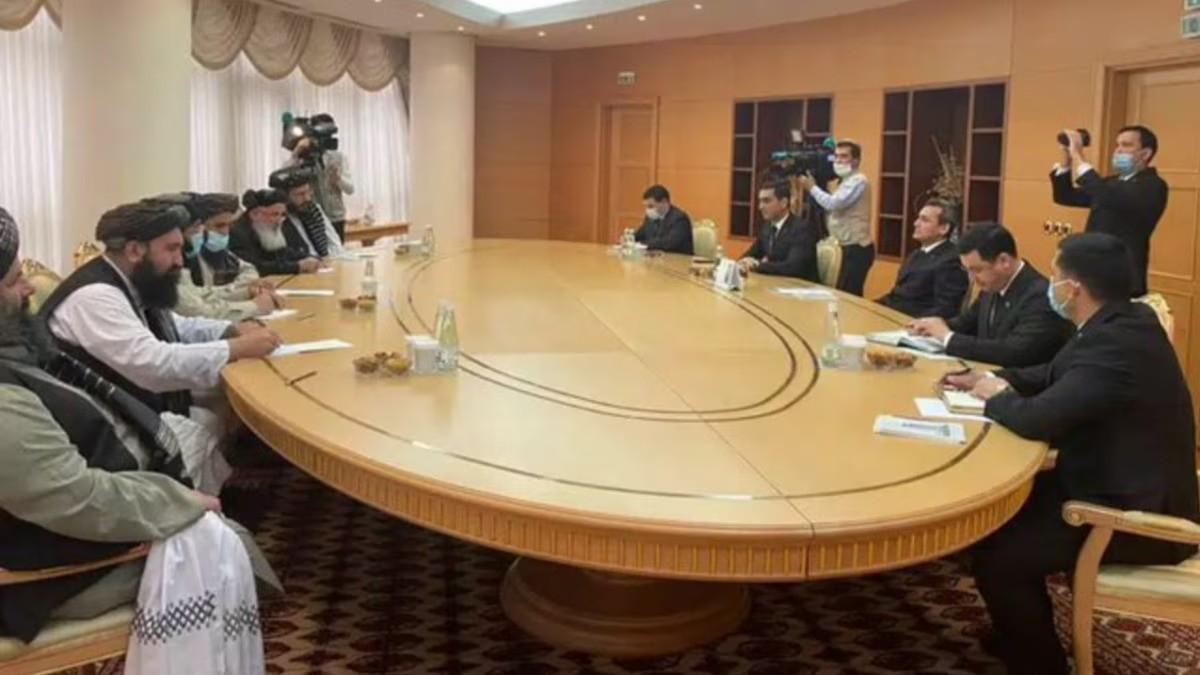Balancing Turkmenistan – Afghanistan relations Deviated approach
Three years after the United States’s withdrawal from Afghanistan and the Taliban's ascension to power, neighbouring countries distanced themselves from Kabul due to security concerns. Due to the long-term pressure from the US and other Western allies, nearly all countries designated the Taliban as a terrorist organization. However, after 2021, some countries hesitate to label the organization as a terrorist group.
Regional countries like Kazakhstan, Uzbekistan, China, India, Pakistan, and Russia gradually restored diplomatic ties with the Taliban government, though not officially recognizing it. Paradoxically, overall domestic security seemed to have stabilized since the Taliban assumed power in the country. However, unlike neighbouring countries, official Ashgabat took a different stance toward the Taliban by not issuing any criticism and maintaining a diplomatic presence in the country despite the mass evacuation of all Western and regional embassies from the country in 2021.

Turkmenistan has carefully avoided openly criticizing the Taliban and its leadership. Its nonalignment strategy, based on the principle of "positive neutrality," mirrors its approach to the Taliban in the 1990s. As such, the country refrained from taking an anti-Taliban position, paving the way for it to enjoy proper, if not particularly warm, bilateral relations with a Taliban leadership taking charge in Kabul, despite Ashgabat's visceral apprehension of Islamist governments.
Turkmenistan's interest in maintaining relations with the Taliban is not without strategic considerations. Despite not playing a significant role in regional and global politics, Turkmenistan, with its 744 km border with Afghanistan, sees potential benefits from its engagement with the Taliban government. These include the construction of the long-delayed Turkmenistan-Afghanistan-Pakistan-India (TAPI) gas pipeline and the continuation of work on the Lapis Lazuli transit corridor, both of which could enhance Turkmenistan's economic and geopolitical standing.

Indeed, the Taliban government positively assessed Turkmenistan's delicate approach and expressed willingness to deepen the partnership. In this regard, the Taliban government’s foreign minister visited Turkmenistan twice, on January 14 and February 26, and in early March of 2024, to attend a joint business forum held in Ashgabat. Considering Afghanistan’s poor technical capacity to conduct complex construction in mountainous terrain, the Turkmen government sent its workers, including oil and gas specialists, installers, and labourers, to Afghanistan for three months to work on the TAPI pipeline. Indeed, Ashgabat's decision was a turning point, as the construction of TAPI has been underway since 2015. However, the unstable security situation in Afghanistan created severe obstacles to the project's full realization.
Following the suit, Kazakhstan, another leading regional state, also reached out to the incumbent government in Kabul. For Astana, the Taliban–ruled Afghanistan as a potential economic partner. For Astana, Afghanistan is an important transit country and could eventually become a significant export destination.

In 2022, the trade turnover between Kazakhstan and Afghanistan reached almost $1 billion. Kazakh authorities plan to increase bilateral trade volume to $3 billion in the following years. The two sides recently struck $200 million in commercial deals, mainly commitments by Kazakhstan to supply Afghanistan with even more essential food. The deal comes as a relief to local grain exporters who have been fighting a losing battle against their Russian peers.
The successful trade turnover forced Astana and Kabul to increase the trade turnover up to $3 billion in the following years. Unlike Kazakhstan, Turkmenistan cannot maintain a huge trade turnover with Afghanistan, but it could still pave the way for the Taliban government's expansion through its territory to establish trade relations overseas. For example, in 2023, Azerbaijan became another post-Soviet state that established a diplomatic presence in Kabul, thus formally recognizing the Taliban government.

Despite some positive factors, Turkmenistan does not hide its concerns regarding the fragile stability within Afghanistan and, therefore, attempts to understand what risks the new situation inside Afghanistan could pose to the national security of neighbouring countries. Consequently, Turkmenistan is cautious to face real threats in terms of radical Islamism ideology that may spill over the region and trigger domestic unrest within its boundaries. Therefore, Ashgabat seemingly attempts to take preventive measures by keeping Afghanistan at a safe distance and establishing good neighbouring relations.








